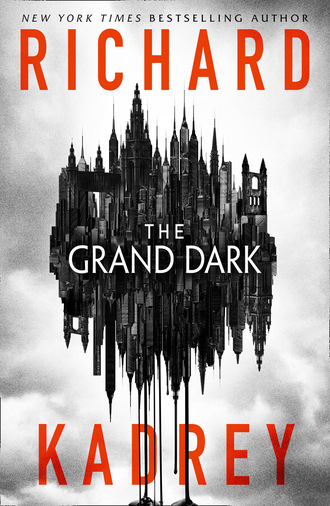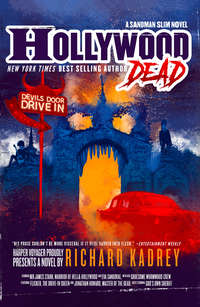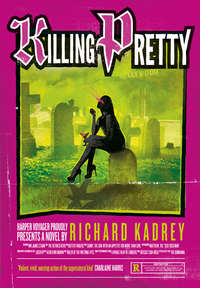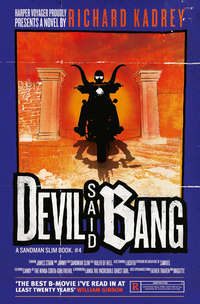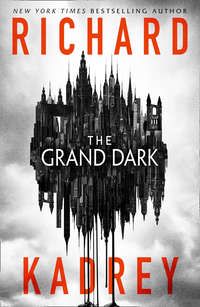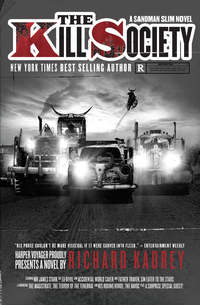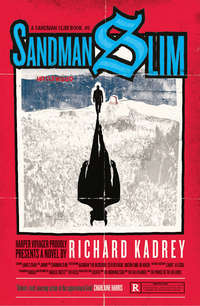Before she could stop herself, Helene said, “Is that what happened to your arms?” The moment the words were out of her mouth she went pale, shocked by her own rudeness. “I’m sorry. I had no right to ask.”
The Kapitän shook his head. “It’s perfectly all right. And yes, that is what happened.”
“In the war?” she said.
“Yes.”
“I’m sorry.”
“There’s no need. I was happy to do my duty.”
Feeling awkward now and wanting to leave as soon as possible, Helene said, “Thank you very much, Herr Kapitän. I’ve truly enjoyed meeting you and your crew.”
However, before she could leave, the Kapitän said, “Actually, I was hoping that you could help us for a moment.”
She looked at him and wondered if he was mocking her for her impertinent question. “I don’t understand what you mean,” she said.
Siodmak pointed out the window at the front of the room. “We’ll be turning into an area with more airships soon. We like to warn them of our approach with a signal flare. I was wondering if you’d like to send it up for us.”
Helene smiled. “You’re not making fun of me, are you?” she said.
The Kapitän shook his head. “Not at all. It’s a simple procedure and quite pretty to see. But, of course, if you’re not interested—”
“But I am. Really.”
“Then step over here, please.”
Attached to the bulkhead was what looked like a pistol grip connected to a long tube that led outside the ship. The Kapitän took a brass cylinder from a small box nearby and loaded it into the tube.
“Is that the flare?” said Helene.
“Yes. There’s a small chimera inside.”
Helene frowned. “The flare is a chimera?”
“You’ll see,” said the Kapitän. He cocked the hammer on the gun and stepped aside.
Helene approached the gun nervously and wrapped her hand around the grip. It was bulky and slightly cold—probably, she thought, from the outside winds coming down the metal tube. She looked at Siodmak and said, “Now?”
“Whenever you like.”
She pressed Frölich’s little pet to her chest and squeezed the trigger. There was a loud whump as the flare shot up and out of the ship. A few seconds later, it burst into purple flames. The chimera was like a fiery bat, flapping its wings as it climbed into the sky. Helene craned her neck to watch it go. A few seconds later, there was a bright flash of light as the bat exploded above the dense clouds overhead. Then something fell from the sky—a thousand small, burning points of light, like a rain of diamonds.
Below the ship, the clouds parted for a moment and Helene could see the edges of the city and her home, Empyrean. For the first time in a long while, she felt at ease. Forward in the ship, Frölich and some of the older men would be talking about steel production and plazma stores for the army. But here, between the ground and the burning clouds above, there were no worries. No talk about the restless poor or war. Helene never wanted to see the city again. She wanted to explode in the sky and rain down on the world like burning jewels.
Eventually, though, she thanked the Kapitän, the Leutnant, and the rest of the crew and made her way forward again. After delivering the little chimera back to Frölich, Helene went into the greenhouse observation deck and found the window he’d pried open earlier. In a few seconds, the freezing wind numbed her face. It would be so easy, she thought, to step out into the sky like the little bat. Helene wondered how far up she could go if she jumped as hard as she could …
The rain grew heavy, though, and soon she closed the window and returned to the party. Helene found Greta still wedged between Orlok and Gustav on the pillows. She and Orlok were making love, but drunken Gustav had fallen asleep. Helene pushed him aside and kissed Greta as Alex pulled her down to join in the fun.
CHAPTER FIVE
Dr. Venohr had been right. When Remy woke up in the morning she appeared to be fine. She didn’t even remember getting sick at the party.
“It was very frightening,” Largo said. “You scared everybody.”
Remy patted his cheek. “You don’t have to worry about me, silly boy. I’m not going anywhere.” Before he could say anything, she looked down at herself and then at Largo. “Why are we still dressed?”
“I told you. You were sick. Dr. Venohr and I put you straight to bed.”
She tilted her head and looked at him. “I don’t mean why are we dressed. I mean why aren’t we undressed?” Remy pulled her dress off and threw it on the chair. Naked, she began to unbuckle Largo’s belt as he quickly unbuttoned his shirt. He barely got it off in time. Remy tugged his pants down over his thighs and climbed on top of him, guiding his cock inside her. Together, they rocked and thrust and scratched each other’s bodies. Largo was amazed that this was the same woman he’d carried home comatose the night before. However fragile she’d seemed then, that was all gone now. This was the Remy he knew. His Remy. And she dug her nails into his chest as she made a few last violent thrusts down onto him before holding still and squeezing him with her thighs. He laughed. Her strong, athletic body held him in place. He couldn’t have moved if he’d wanted to. Finally, Remy relaxed and fell heavily on top of him.
Still breathing hard, he said, “Well, that was unexpected.”
“Because I’m such a delicate flower?” said Remy.
“Because you were as dead-eyed as one of your theater dolls last night.”
“I trust I’ve convinced you that I’m not about to collapse like an old hausfrau or deflate like a balloon?”
“I pronounce you fit enough to fight an ox.”
She kissed him just as the bell in the Triumphal Square rang the half hour. Largo sat up and looked at the little clock on Remy’s bedside table.
“Shit,” he said. “I have to get to work.”
Remy rolled off him reluctantly and said in a joking whine, “I want to prove to you how well I am again. Can’t you be just a little late?”
“I’m sorry. I can’t. Herr Branca promoted me to chief courier, and he can take the promotion away just as easily.”
Remy sat up on her elbows. “Why didn’t you tell me? We could have celebrated.”
Largo pulled on his pants and shoes. “The party was celebration enough.”
“We’ll have to do something tonight.”
He looked around for his shirt. “Damn. The only shirt I have is the one from the theater. I don’t have time to get one of mine. Is it all right if I wear it today?”
Remy lay down on her stomach and waved a hand in his direction. “Go ahead. They’ll never miss it.”
“Thank you.”
“We must at least have some morphia together before you go.”
He shrugged into his coat and said, “That sounds lovely.” From the gilt table, he picked up the little bottle Dr. Venohr had left the night before. He tossed it to her. “That’s for you.”
“Ooh,” said Remy, pressing the bottle to her cheek. “This will last a while. Where did you get it?”
“A friend,” said Largo. He went to the bed and knelt down next to her. “Now hurry. I really have to go.”
Remy opened the bottle and squeezed out a drop under each of their tongues. When they kissed, Remy held Largo’s face fast in her hands. When he felt the first effects of the drug, he pulled back and gave her a last peck on the lips. “Now I really have to go.”
Still naked, Remy followed him through the living room to the door. As they kissed once more, Remy’s Trefle rang. She ran to pick it up.
“Dr. Venohr. How nice of you to call. No, I’m fine …”
Largo closed the door. It was then that he realized he’d left his bicycle at the Grand Dark the night before. In theory he could take a Mara cab there, but he’d left his tip money at his flat. There was no choice. He took a breath and knocked on Remy’s door. She opened it a moment later, still undressed.
“Are you the rent boy I sent for? Hurry inside before my lover finds out,” she said breathlessly.
Largo smiled tightly at the joke. “I’m sorry,” he said, “but I left my bicycle at the theater and I have no money for a cab or the tram.”
Remy went to her purse and brought back a few bills, which she held just out of his reach. “Take this. But just remember that I’m going to make you and your cock earn every penny of it tonight, you tart.”
This time Largo’s smile was genuine. He took the money, kissed her, and ran out of the building, where he hailed a cab. “The Theater of the Grand Darkness,” he said. “And hurry please. I’ll pay extra.”
“No need, sir,” said the Mara.
Largo sat back as it took off through the foggy morning streets.
That was humiliating, asking for money, he thought. At least there will be more tips today so I can pay Remy back. Then it will be payday soon. But I can’t go on like this if I’m going to convince her to move in with me.
Largo wondered about Remy’s health and whether it had been a good idea to leave her with a full bottle of morphia. He decided that as soon as he had any tip money, he’d call her from a public Trefle.
There was nothing to do but stare out of the window as the cab made its way through the city. Chimeras ate street trash as usual. Drunken couples weaved their way home, also as usual. Posters covered the sides of tram shelters. Ads for the cinema. Antigovernment broadsheets. A faded sign for a performance by Anita Mourlet, billed as the Madonna of Depravity. Largo sighed. It was all so ordinary and dull. And slow. He wondered what time it was.
When the cab finally stopped in front of the Grand Dark, Largo tossed the money Remy had given him to the Mara and dashed out. Thankfully, his bicycle was where he’d left it behind the theater. He unlocked it and sped off to work.
He stayed off the main streets because he knew that they’d be crowded at that hour. He went down trash-strewn alleys and cut through the ruins of buildings that had been hit by stray bombs during the war. Largo went all the way out to the bay and pedaled down the causeway where ships were unloading. Fishermen and scowling dockworkers stared at him. He ignored them as usual—while the route was longer, the empty streets meant he could make up a lot of time.
He steered back onto city streets in the butchers’ quarter. Blood pooled on the cobblestones and ran in little clotted rivers down to the sewers. There was a small plaza nearby where old men and young boys had carts where they cooked meat from the shops and sold pieces of it on long yellow skewers. Normally Largo could find a shortcut through it, but today he found the far end blocked—by, of all things, a traveling carnival.
It was promoting its arrival in the city with a small impromptu show. Since it was in the butchers’ quarter, clowns juggled raw chunks of meat while pretty women acrobats swung from the old coal gas lamps that lit the plaza at night. A large man in a tiger-striped suit barked orders in a guttural foreign language at a half dozen catlike chimeras as they leaped in the air and came down on their front legs. They’re perfect, Largo thought. Just the kind of creatures I’d make.
But they’re making me late.
The happy crowd pressed in around the performers. There was no way for him to get through to the exit, so he turned the bicycle around and went back the way he’d come. All he could do now was go around the butchers’ quarter onto the main streets and hope that traffic was clear enough that he could make it to work before six.
Just as he reached the exit, a woman screamed and a man yelled, “Get back!” For a moment, Largo thought they were shouting at him. His first instinct was to get away from whoever was bellowing at him, but when he looked back he saw a man on the ground writhing in convulsions. By his heavy state-issued coat, the mask hiding his face, and a few medals on his chest, Largo identified him as an Iron Dandy. The man’s contortions were much worse than Remy’s had been the night before. He arched his back so far and hard that it broke, the crack echoing off the plaza walls. His shoulders rolled and his head looked like it wanted to twist itself off his neck. But worse than that, the soldier’s arms and legs snapped and bent back at odd, unnatural angles. People shouted for a doctor, but no one would approach the sick man. Even those who’d never seen the Drops knew what it was and no one wanted to risk becoming infected.
Finally, the Dandy’s neck cracked and his head flopped back and forth like a dying fish. Blood oozed from his mouth. However, the more Largo looked, the less certain he was about what he saw. What came from the Dandy’s mouth wasn’t red.
It was black and thick and smelled like scorched oil.
“Don’t get it on you,” someone shouted, and the crowd moved farther back. Largo felt sympathy for the soldier, but he couldn’t waste any more time. He was starting to ride away from the scene when someone grabbed him from behind.
“Where do you think you’re going?” said the police officer. He was about Largo’s height, with dark lanky hair that fell into his hard eyes. His black uniform had three silver stripes near the cuffs. A bullock Sergeant, thought Largo. The officer had a fistful of Largo’s coat in one hand and a truncheon in the other.
“Nowhere, sir,” said Largo. “I can’t think of anywhere else I’d like to be on such a beautiful morning.”
The officer looked up at the fog- and smoke-choked sky, then back at Largo. “What a clever young man you are,” he said. “Wait here.”
The Sergeant left and came back with a man in a long gray coat. He was much older than the Sergeant and very thin, with sharp protruding cheekbones. An undercover bullock. Largo despised ordinary police, but this covert one frightened him. Could he have signaled the Sergeant to grab Largo?
The undercover officer wore thick rubber gloves and held a large rolled-up sheet of paper.
“Do you know what this is?” he said.
“I have no idea,” said Largo.
The officer let the poster fall open. It was something political. There were strange symbols in one corner. In the center was a burning Proszawan flag being held by a caricatured figure Largo assumed was a politician.
“I’m Special Operative Tanz,” said the undercover officer. “What do you know about this?”
“Nothing,” said Largo.
“Really? They’re all over the city. Are you claiming to have never seen one before?”
“I’m not very political, sir.”
Tanz and the Sergeant glanced at each other. The Sergeant said, “What’s your name?”
“Largo Moorden.”
Tanz said, “That man back there is a radical. An anarchist. How do you know him?”
“I don’t,” said Largo.
“You were trying to run away,” said the Sergeant.
“No, I wasn’t. I was going to work.”
“You told me you had nowhere else to be.”
Largo gave the Sergeant a tentative smile. “It was a joke, sir. I was nervous.”
“Nervous?” said Tanz. “About what? Because you knew you’d been caught with a fellow conspirator?”
This was everything he feared, everything he’d been taught to avoid growing up in the Green. He tried to relax and keep his voice steady.
“No. I’ve just received a promotion and now I’m going to be late.”
“Who would give a fool like you a job?” the Sergeant said.
“Besides spreading sedition,” said Tanz, “what is it you do?”
“I’m a courier, sir. I deliver documents and packages.”
Tanz gave him a look as he rolled up the poster. “What a fine way to distribute propaganda. What’s your supervisor’s name?”
“Herr Branca.”
“His full name,” said the Sergeant.
“That’s all I know.”
The Sergeant made a disgusted sound and spit into the bloody street.
“Didn’t we arrest a Branca the other day?” said Tanz. “He was making bombs in his mother’s attic. The poor woman had no idea she was harboring a madman.”
Largo looked from one man to the other. He knew that no matter what he said, the police would find a way to turn it against him.
“That couldn’t be Herr Branca,” said Largo. “He’s an upstanding supervisor at the company.”
“What’s the company’s name?” said Tanz.
Largo told them. As soon as he said it the officers looked at each other.
“The Nachtvogel,” said the Sergeant.
“Yes. They have their eyes on your place of work,” said Tanz.
“I swear to you, sirs, I’ve done nothing wrong.”
The Sergeant grabbed him and roughly patted him down. He reached into an inner pocket of Largo’s coat and took out a small bottle. “What’s this?” he said.
“Medicine,” said Largo. “A doctor gave it to me.”
Tanz unscrewed the top of the bottle and smelled the contents. “What’s the doctor’s name?”
Largo’s throat went dry. He wished Rainer were there to tell him what to say. He’d been in the army. He knew how to deal with bullocks.
“That’s what I thought,” said Tanz. “What should we do with him?”
The Sergeant rapped the truncheon against his hand. “An anarchist and a drug addict? At headquarters they’d feed him to the dogs.”
“Please,” said Largo. He looked around and for a moment considered riding away, but that would just confirm the police’s worst suspicions. “I’m sorry about the morphia. But I’m not a criminal or an anarchist. I just want to go to work.”
Tanz looked over his shoulder. A group of men in thick gray rubber suits with hoods and gas masks were putting the dead veteran’s body in a sealed box. Armed Maras patrolled the edge of the crowd, keeping bystanders back.
“You’re lucky,” sneered the Sergeant. “We have bigger fish to fry than you.”
“Go to work, Largo Moorden,” said Tanz. “But we’ll be checking up on you and your Herr Branca.”
The Sergeant said, “You’re lucky it’s just us. Consorting with a criminal radical like this—people much worse than us would be interested in that.”
The Nachtvogel.
Largo couldn’t help himself, though. He said, “I wasn’t associating with him. He was sick. I was trying to get away.”
“You make me sick,” said the Sergeant.
“Get out of here,” said Tanz.
It was 6:15 before Largo arrived at the office. Other couriers were already filing out with parcels and letters. Some grinned and a few sneered at him, knowing what was waiting for him inside. Andrzej bumped his shoulder into Largo’s on the way out. “What happened to you?” said Parvulesco. “Branca asked about you twice.”
Largo shook his head. “I’ll tell you later.” His friend gave him a pat on the arm and went to his bicycle.
Margit was the last courier to come out of the office. She was small and blond and wore her hair short like a young boy’s. Because it was rumored that she preferred women romantically, some of the other couriers teased her constantly. Her eyes were covered by glasses with round dark lenses. Largo lightly touched her elbow. “I need to speak to you,” he said.
She raised an eyebrow at him. “About your funeral? Herr Branca has it planned out. We’ll all be attending.”
“I need some morphia,” Largo whispered.
Margit looked around. “I don’t have any with me. Maybe at lunch. Do you have cash?”
“I will by then.”
“See that you do,” she said sternly. “I can’t give credit anymore. Even to you.”
“Don’t worry. I’ll have money.”
“At lunch then.” She turned and went to her bicycle. Largo looked at the door to Herr Branca’s office, took a breath, and went inside.
Branca glanced up at him when Largo entered the room. He made a great show of capping his pen and setting it down on his desk. “Thank you for joining us this morning, Largo.”
“I’m very sorry I’m late.”
“I thought we discussed this. As chief courier, you have to be an example to the others.”
“Yes sir. I understand, but the bullocks, that is, the police wouldn’t let me go.”
Branca frowned and came around his desk. “The police? What did you do to attract their attention?”
“Nothing. There was an incident in the butchers’ quarter and I was trying to leave.”
“What kind of incident?”
“A man was ill. It might have been the Drops.”
“How dramatic,” said Branca. “Why did the police think it was necessary to question you?”
“They accused me of being the man’s accomplice.”
Branca stepped closer to Largo. “Accomplice? Accomplice in what?”
“They said he was an anarchist.”
Branca opened his eyes wider. “And are you?”
“Sir?”
“Are you an anarchist?”
“Of course not.”
“That’s good,” said Branca. “I can’t abide seditionists and neither can the company.”
“There’s something else …,” said Largo.
“Well?”
“I’m afraid they might come to talk to you.”
“Here? You told them where you worked?”
“I had no choice.”
“I see. I assume they searched you? What did the officers say when they discovered your knife?”
Reluctantly, Largo said, “I didn’t have it.”
Branca looked at the ceiling. “Where is it?” he said.
“At home.”
“I see. You didn’t go home last night?”
“No. I was with a sick friend.”
“Of course,” said Branca. He looked thoughtful for a moment. “Perhaps it was a lucky thing, this sick friend of yours. If the police suspected you of a crime they might have misconstrued the knife.”
“Do you think it’s safe for me to continue wearing it?”
Branca clasped his hands behind his back. “You must make a choice. Which is the greater fear: the police, or losing your job and possibly your life?”
“I want to keep my job. And my life.”
“A wise choice. See that you don’t forget the knife again.”
“I won’t.”
“All right. Enough of this nonsense. You have deliveries to make,” said Branca. He went back behind his desk.
“Then I’m not fired?”
“We’ll see. I’m not happy about the police incident, but I applaud you for your honesty.” Branca looked at a few parcels stacked on a battered wooden worktable. He picked up one and weighed it in his hands. “This will do nicely. I suspect you’ll wish you had your knife with you this morning.”
Largo looked at the package and wondered what was inside. He tried reading the address, but it was too far away. Is the old bastard just giving me a hard time or sending me off to get killed? he wondered. “I’ll get the knife during my lunch break,” he said.
“Another wise choice,” said Branca. “Tell me, does this sick friend of yours have any other friends?”
“Yes. Many.”
“Then perhaps one of them can visit tonight so that you won’t be tardy tomorrow.”
Largo shifted his weight from one foot to the other. “It won’t be necessary. She’s much better now.”
“I’m nearly fainting in delight,” said Branca, handing the parcel and an old shoulder bag to Largo, who took them and started out.
“Largo,” said Herr Branca.
He stopped and turned around.
“I approve of your shirt. It’s good to see you dressing a bit more professionally. I should have the money for your clothing stipend tomorrow. That’s all.”
Largo nodded to Branca and went out to his bicycle. He was excited at the prospect of having some decent clothes to wear. However, when he read the address on the parcel the excitement evaporated.
I was right.
The prick wants me dead.
HINTERLAND
Machtviertel had never really been a neighborhood, merely a collection of coal power plants, warehouses, and rail hubs. The plants produced power for much of the western half of Lower Proszawa, but its location had been chosen primarily to provide an endless source of heat and electricity for the armaments factory. However, when it switched to plazma power many years earlier, that left a surplus of coal in the district and more workers than it needed. Yet no one lost their job. The government kept the trains coming and let the coal pile up. They calculated that it was better to pay the workers than let them sit idle. And so the coal continued to grow. The coal continued to burn. And thus Machtviertel became a walled city within the city, ringed by a moat of filth.


